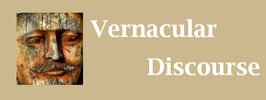|
Ridicule
|
a discursive strategy that comically disparages things; the nearest Classical figure is the Greek diasyrmus, meaning 'tearing in pieces'; rejecting an argument through ridiculous comparison
|
|
Anthony Ashley-Cooper (17th century)
Truth, it is supposed, may bear all lights, and one of those principal lights, or natural mediums, by which things are to be viewed, in order to a thorough recognition, is ridicule itself, or that manner of proof by which we discern whatever is liable to just raillery in any subject.
|
Christopher Stone (1914)
Ridicule is society's most effective means of curing inelasticity. It explodes the pompous, corrects the well-meaning eccentric, cools the fanatical, and prevents the fanatical from achieving success. Truth will prevail over it, falsehood will cower under it.
|
Purpose, Usage & Examples
Ridicule powerfully attacks arguments. Most effective in speech where audiences can horselaugh together, ridicule makes arguments appear ridiculous by negating, inverting or mocking them with ridiculous analogies.
Logicians generally consider 'appeals to ridicule' fallacious. But ridicule is commonplace in speech, in everyday arguments and anywhere people discuss and debate contentious and divisive issues. Examples are politics, religion and comedy. Ridicule is more likely to appear where 'rational argumentation' means different things to opponents. This is particularly true when beliefs are sharply divided.
Logicians generally consider 'appeals to ridicule' fallacious. But ridicule is commonplace in speech, in everyday arguments and anywhere people discuss and debate contentious and divisive issues. Examples are politics, religion and comedy. Ridicule is more likely to appear where 'rational argumentation' means different things to opponents. This is particularly true when beliefs are sharply divided.
|
Barack Obama ridicules climate-change deniers
ThinkProgress, 2013 |
Richard Dawkins reads hate mails ridiculing his atheism
richarddawkins.net, 2010 |
Ridicule is a discursive 'macro-strategy' of argumentation that may employ other discursive strategies and comical and critical figures of speech. These include hyperbole and litotes, parody and satire, irony and sarcasm, and ridiculous analogies. Ridicule confronts and embarrasses its targets but has important social functions.
Ridicule Embarrasses
H.L. Mencken
One horse-laugh is worth ten thousand syllogisms. It is not only more effective; it is also vastly more intelligent.
One horse-laugh is worth ten thousand syllogisms. It is not only more effective; it is also vastly more intelligent.
Ridicule is powerful because it embarrasses its targets And the more powerful or serious the targets, the greater the power and embarrassment of ridicule. Ridicule is the most powerful technique the least powerful have against the more powerful.
Comedians and journalists use ridicule to embarrass prominent and powerful people, especially when their private behaviour leaks into the public domain. Like all forms of critical laughter, ridicule works best when it maximizes incongruity.
Comedians and journalists use ridicule to embarrass prominent and powerful people, especially when their private behaviour leaks into the public domain. Like all forms of critical laughter, ridicule works best when it maximizes incongruity.
|
The Guardian ridiculed the appointment of an 'equalities' minister who opposed gay marriage, and then changed her mind.
|
This poster ridicules by maximizing the incongruity between Christian teaching and the practices of the Roman Catholic Church.
|
Ridicule Disciplines
|
Christopher Hitchens
Laughter is the one thing that pomp and power can do nothing about. |
Michael Billig
Ridicule is disciplinary teaching. |
Ridicule disciplines by targeting incongruities between human conduct and idealized norms of morality and rationality. Ridicule is therefore used in social and political situations to castigate and correct human behaviour and beliefs that fall short of ideals.
|
Christopher Hitchens ridicules the 'afterlife'
Is there an afterlife? Jewish Television Network, 2011 |
Bill Maher ridicules 'expert' beliefs
HBO Real Time, 2013 |
Ridicule Sustains Social Order
|
Aristotle (~300 BCE)
Wit is cultured insolence. |
Philip Dormer Stanhope (17th century)
Ridicule is the best test of truth. |
|
Alexander Pope (18th century)
Safe from the Bar, the Pulpit and the Throne Yet touched and shamed by Ridicule alone |
Edward Gibbon (18th century)
Of the various forms of government which have prevailed in the world, an hereditary monarchy seems to present the fairest scope for ridicule. |
Ridicule sustains and reshapes social orders because wit and mockery provide social correctives against the absurdity of life and deficiencies in society's institutions, rules, common beliefs, etc.
The simplest way to ridicule human conduct and beliefs is by negating them: calling them 'ridiculous.' Common beliefs that attract ridicule include:
The simplest way to ridicule human conduct and beliefs is by negating them: calling them 'ridiculous.' Common beliefs that attract ridicule include:
Everyday 'Ridiculous' Beliefs
feng shui
astrology
numerology
homeopathy
superstitions
the supernatural
conspiracy theories
religions and theology
'I died and came back' stories
feng shui
astrology
numerology
homeopathy
superstitions
the supernatural
conspiracy theories
religions and theology
'I died and came back' stories
Dan Barker
Theology is a subject without an object.
Theology is a subject without an object.
Ridicule gets disparaged as 'unserious' argumentation but has ever seriously critiqued society. Even philosophers use it. Ridicule powerfully unseats unsound arguments because anything that can be made to look ridiculous is ridiculous.
18th Century
Thomas Paine ridicules hereditary governance
Thomas Paine ridicules hereditary governance
The French constitution has resolved against having a house of peers [...] because the idea of hereditary legislators is as inconsistent as that of hereditary judges or hereditary juries; and as absurd as an hereditary mathematician, or an hereditary wise man; and as ridiculous as an hereditary poet-laureate.
19th Century
Mark Twain ridicules the Book of Mormon
Mark Twain ridicules the Book of Mormon
The book is a curiosity to me, it is such a pretentious affair, and yet so 'slow,' so sleepy; such an insipid mess of inspiration. It is chloroform in print. If Joseph Smith composed this book, the act was a miracle—keeping awake while he did it was, at any rate. If he, according to tradition, merely translated it from certain ancient and mysteriously-engraved plates of copper, which he declares he found under a stone, in an out-of-the-way locality, the work of translating was equally a miracle, for the same reason.
20th Century
Bertrand Russell ridicules teleology
Bertrand Russell ridicules teleology
When you come to look into this argument from design, it is a most astonishing thing that people can believe that this world, with all the things that are in it, with all its defects, should be the best that omnipotence and omniscience have been able to produce in millions of years. I really cannot believe it. Do you think that, if you were granted omnipotence and omniscience and millions of years in which to perfect your world, you could produce nothing better than the Ku Klux Klan or the Fascists?
21st Century
|
Bill Maher ridicules gun culture in America
HBO Real Time, 2014 |
Bill Maher ridicules the Christian holy trinity
Bill Maher...But I'm Not Wrong, HBO, 2010 |
See also theories and effects of laughter.


